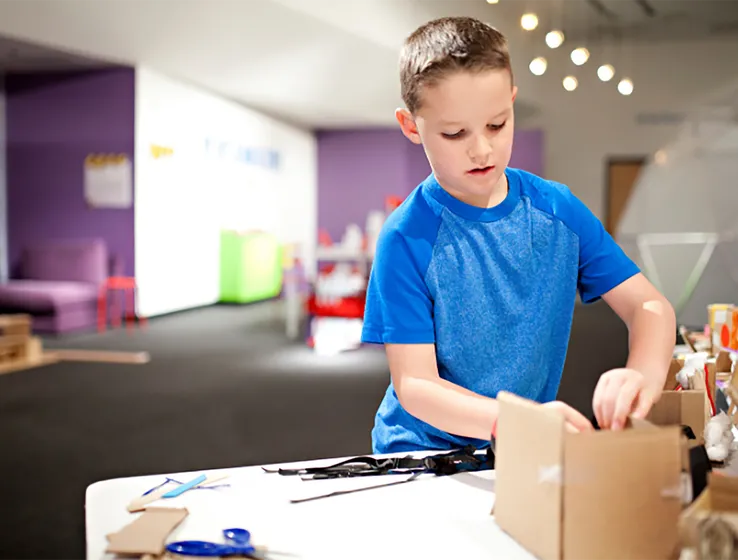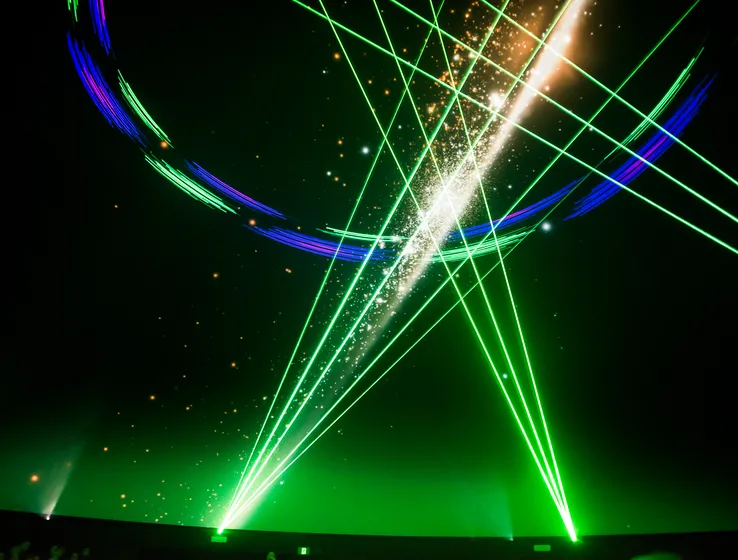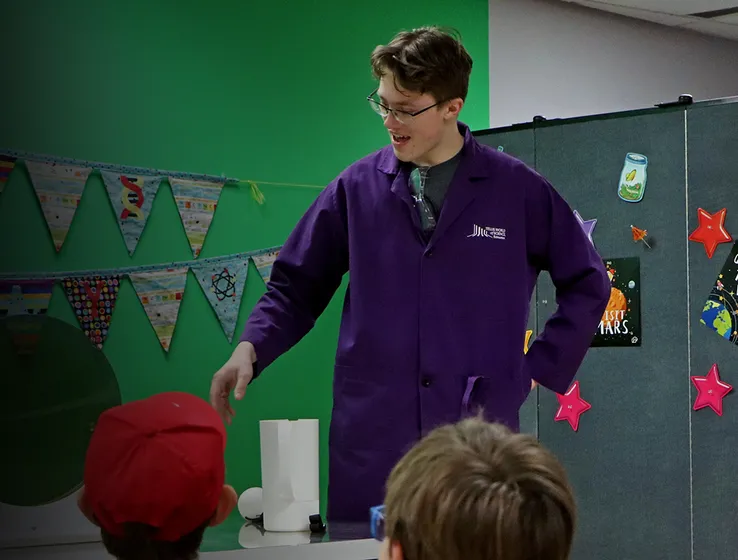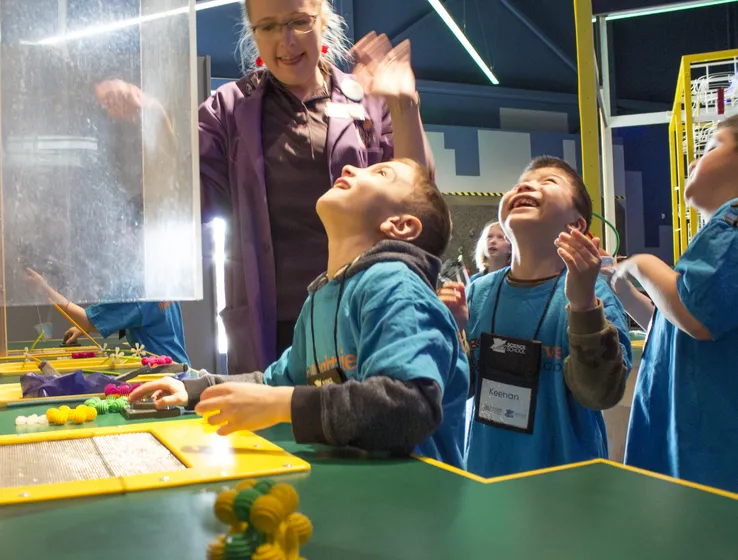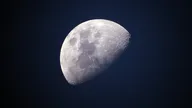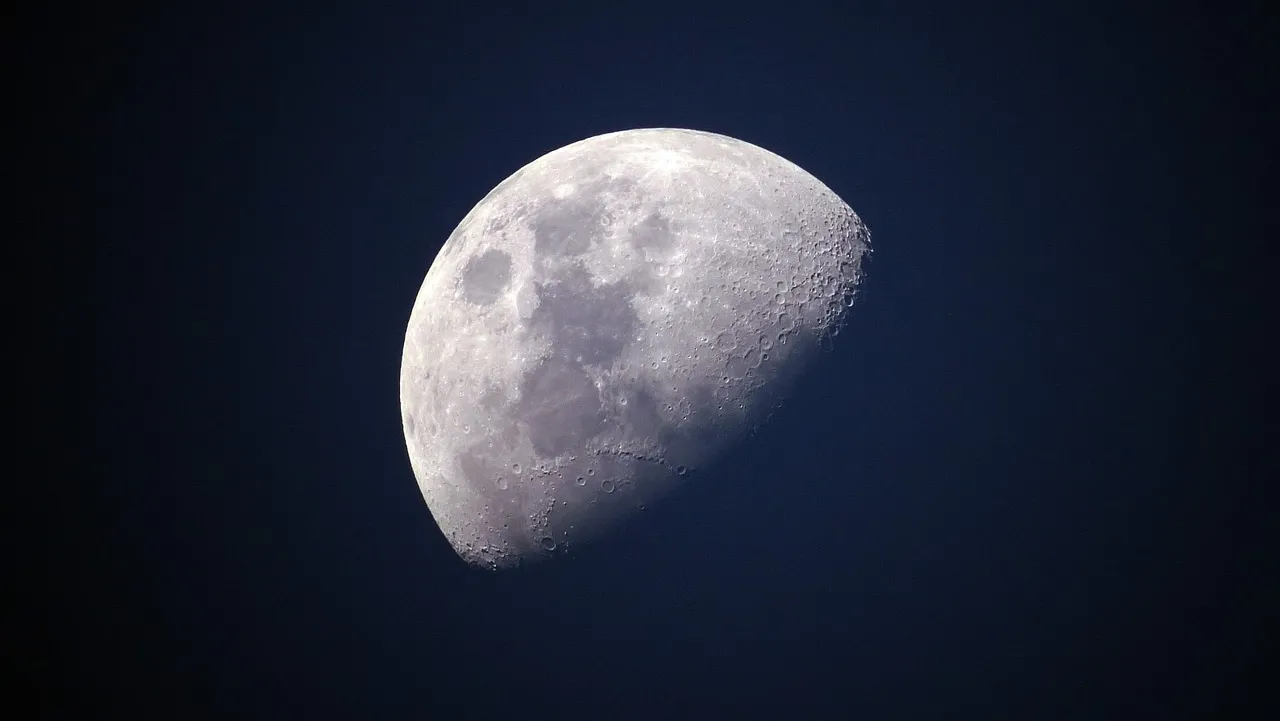Through the 2026 Science Fellowship, the Edmonton Space & Science Foundation honours an emerging STEM professional dedicated to their field and to enriching their community through science communication and outreach.
Overview
The Fellowship supports individuals working in STEM fields who are making meaningful contributions to their discipline and to the broader community. Applicants must be based in Northern Alberta and demonstrate alignment with the TELUS World of Science – Edmonton’s Strategic Framework and Core Values.
Eligibility Criteria
To be considered, applicants must meet all of the following criteria:
- Work in a STEM-related field, including: Science, Technology, Engineering, Mathematics, Medicine, or Science Communication
- Conduct work that aligns with the Strategic Framework and Core Values of TELUS World of Science – Edmonton
- Be a resident of Alberta, Yukon, Nunavut, or the Northwest Territories
- Have a job located in Northern Alberta, including Edmonton and regions north of the 52nd parallel
- Be under the age of 40
Fellowship Details
- The selected Fellow will receive an award of $2,500
- The recipient will be recognized at The Edmonton Space & Science Foundation's Annual General Meeting
- The Fellow must commit to participating in at least two (2) outreach events at TELUS World of Science – Edmonton between January and December 2026
- For Northern residents who are unable to travel to Edmonton, virtual or asynchronous outreach options will be available.
Congratulations to the 2026 Science Fellow, Dr. Paulina Johnson!
2026 SCIENCE FELLOW - Dr. Paulina Johnson
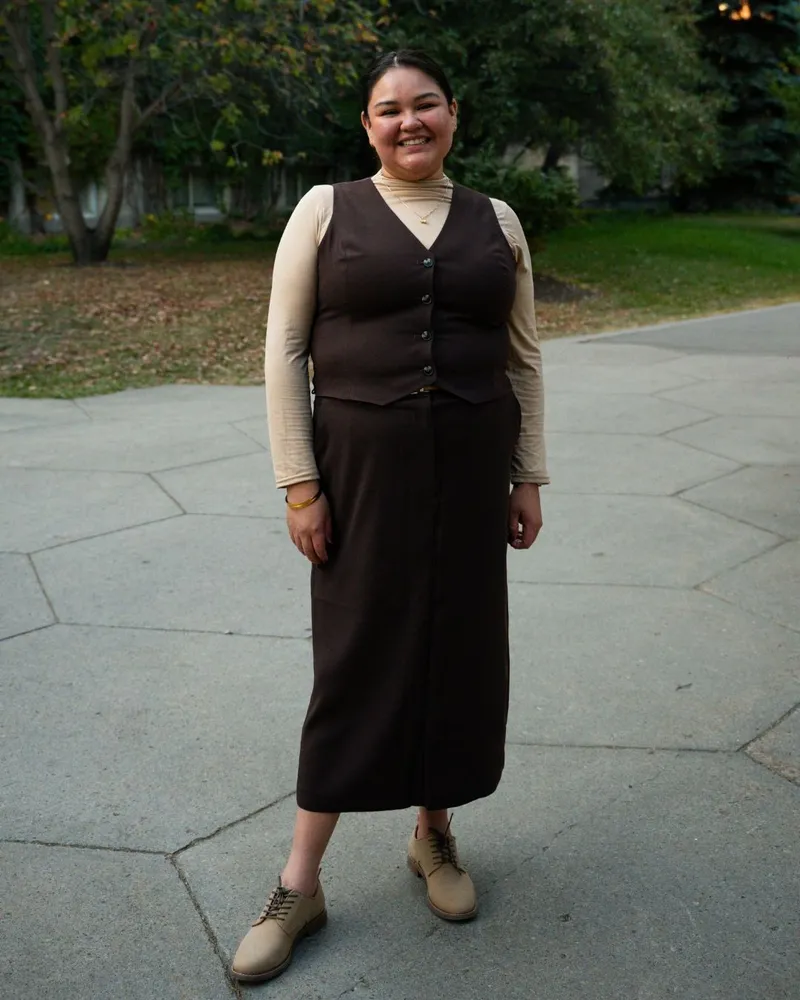
Paulina Johnson, PhD, Department of Sociology, University of Alberta
Dr. Paulina Johnson (she/her) Sîpihkokîsikowiskwêw, Blue Sky Woman, is Nêhiyaw (Four-Spirit/Plains Cree) and a citizen of Samson Cree Nation from Maskwacîs, Alberta. She is an Assistant Professor of Sociology at the University of Alberta (UofA) and the Co-Research Director for Braiding Knowledges Canada. She hosts “The Auntie Is In” podcast and leads the “Blue Sky Research Lab” at UofA, emphasizing Indigenous methods, protocols, and community-based practices in academic research. Currently, she is working on “Relational Accountability of Mother Earth: Revitalizing and Restoring the Land and Water,” funded by the New Frontiers Research Fund, International Joint Initiative for Research in Climate Change, Adaptation and Mitigation. This $2.75 million research project highlights Indigenous voices on climate change.
Previous Science Fellows
2025 SCIENCE FELLOW - MATTHEW GUZDIAL
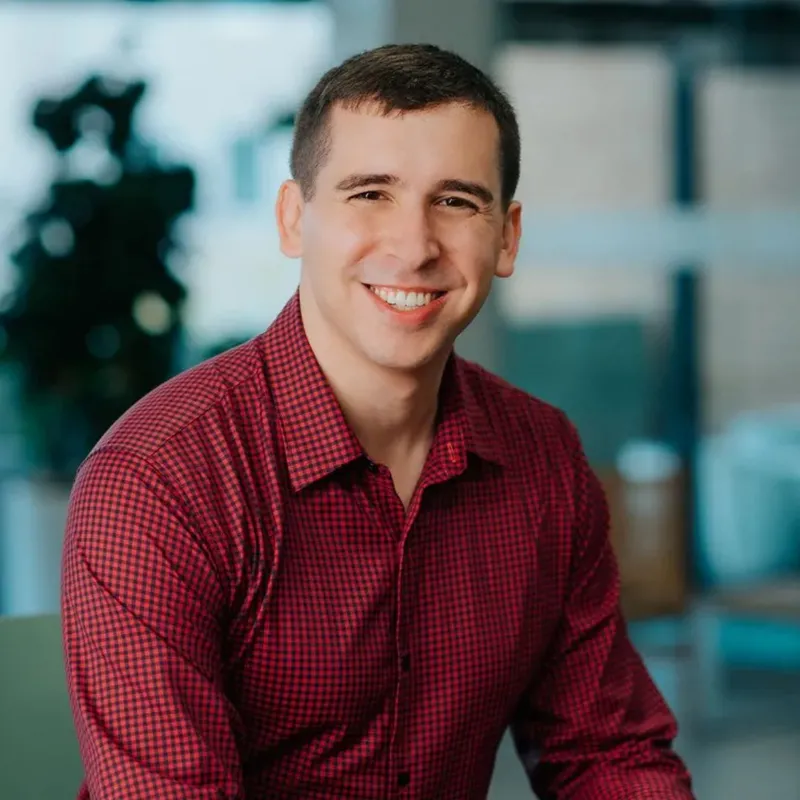
Matthew Guzdial, PhD, Department of Computing Science, University of Alberta
Matthew Guzdial was born in Ann Arbor, Michigan and received his PhD from Georgia Institute of Technology. He is an Assistant Professor in the Computing Science department of the University of Alberta and a Canada CIFAR AI Chair at the Alberta Machine Intelligence Institute (Amii). He has always been fascinated by the creative process leading to his research focus on the intersection of artificial intelligence, creativity, and human-centred computing. He is a recipient of an Early Career Researcher Award from NSERC, an Early Career invited talk from IJCAI, a Unity Graduate Fellowship, and two best paper awards from the International Conference on Computational Creativity. His work has been featured across many venues, including the BBC, WIRED, Popular Science, and Time.
2024 SCIENCE FELLOW - VALERIE MILLER, PhD
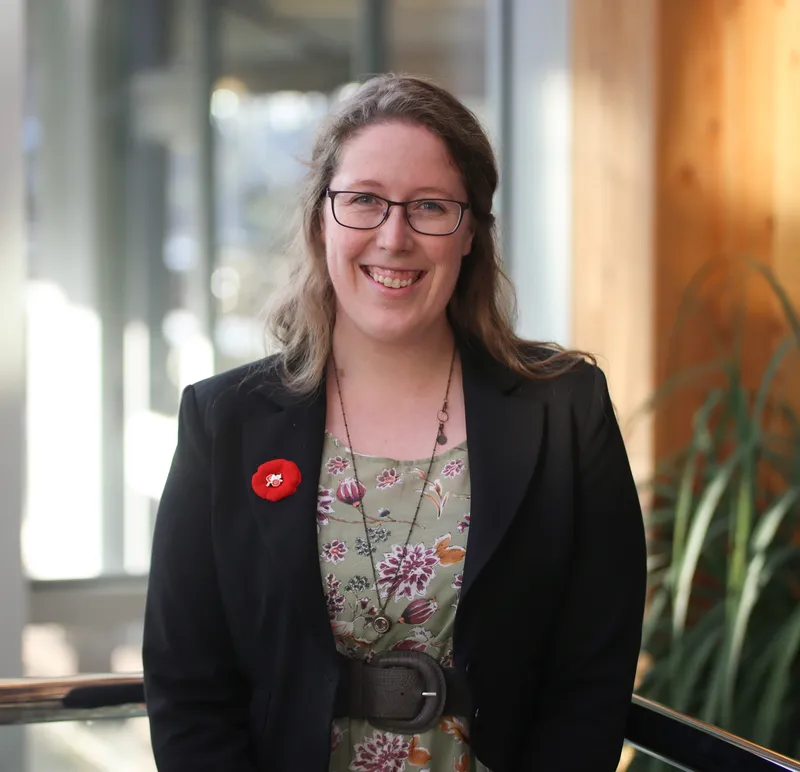
Valerie Miller, PhD, Future Energy Systems, University of Alberta
Valerie Miller (she/her) holds a PhD in land reclamation from the University of Alberta, which focused on building soils using mine waste at a diamond mine in northern Canada. During her PhD program she was a teaching assistant, primary instructor, community volunteer coordinator, and a volunteer with various science outreach organizations including TELUS World of Science - Edmonton, Nature Kids, Let’s Talk Science, and Alberta Envirothon. She was a founding member of the Future Energy Systems Peers in Research Communication (PIRC) group. In 2019, Valerie joined Future Energy Systems, a research program at the University of Alberta focused on helping Canada transition to a low net carbon energy economy. As Outreach and Engagement Coordinator, and now Lead, Valerie aims to connect researchers and students to the community through a breadth of programs. This includes partnering with schools to host in class sessions and campus tours, lectures at the public library, PD training for teachers, developing videos for all audiences, and more. Valerie manages the Energy Explorers science communication training program that trains graduate students to effectively share their research. In addition, Valerie authored The Energy Adventures of Tommy and Remi series, children’s books that explore energy topics. Valerie hopes to bridge the gap between academia and the public, share important learnings and experiences between groups, and build STEAM (science, technology, engineering, arts, and mathematics) literacy.
2023 SCIENCE FELLOW - JEREMIAH BRYKSA
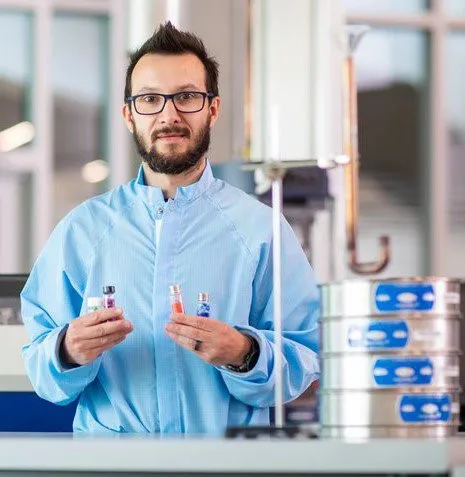
Jeremiah Bryksa, Applied Chemist, NAIT
As an applied chemist on the Clean Technologies team at the Northern Alberta Institute of Technology (NAIT), Jeremiah has over ten years of experience in laboratory testing, focusing on analytical chemistry in environmental science, chemical and material engineering, and petroleum fuel testing. His current research investigates an emerging environmental contaminant: microplastics. Microplastics are microscopic plastic particles found throughout the environment in oceans, lakes, rivers, and across the food chain. Leading a multidisciplinary research team studying the North Saskatchewan River, Jeremiah’s research aims to answer where microplastics come from and how their concentration changes over time. As part of this work, his team has developed high-throughput sampling techniques applicable to complex freshwater systems like the North Saskatchewan River, optimized laboratory methods to extract and characterize microplastics from freshwater samples, and established quality assurance protocols. This project is part of the Plastic Research in Action (PRIA) initiative, in collaboration with Interpipeline and Dow Canada, and is one of the most extensive microplastic studies ever done within Canada. Jeremiah hopes to contribute to the growing scientific understanding of microplastics in the environment and share his work with the public on this emerging contaminant and growing environmental concern.
2020-2021 SCIENCE FELLOW - DR. LAUREN GUILLETTE & DR. ABRAM HINDLE
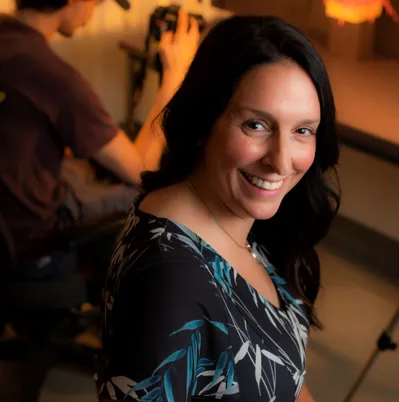
Dr. Lauren Guilette, Department of Psychology, University of Alberta
As a part of Dr. Lauren Guilette’s Science Fellowship at TELUS World of Science – Edmonton, she and her team at the the Animal Cognition Research Group have created a lesson plan and activities about nesting birds. The program is designed to support Topics C and E of Alberta’s Grade 1 science curriculum.
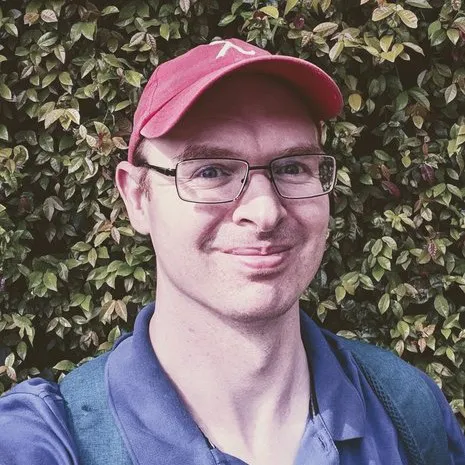
Dr. Abram Hindle, Department of Computing Sciences, University of Alberta
Abram is an associate professor at the University of Alberta, in Edmonton, Alberta, Canada within the Department of Computing Sciences. He researches software engineering, mining software repositories, software process recovery, the intersection between software engineering and computer music, and Green Mining (the study of software change versus software energy consumption and software power consumption).
2019 Science Fellow - Dr. Vincent Bouchard
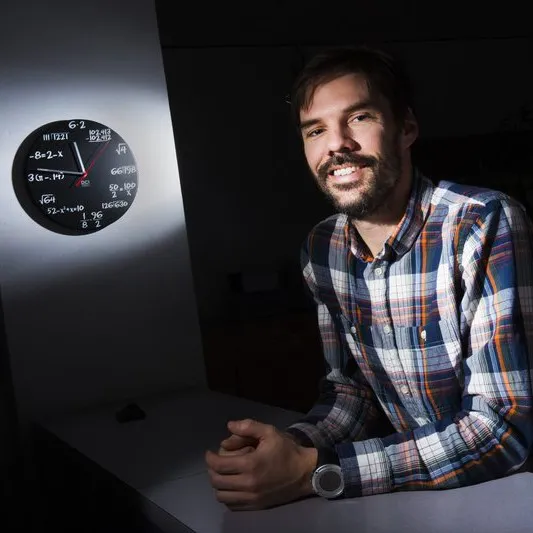
Dr. Vincent Bouchard, Faculty of Mathematics & Statistical Sciences, University of Alberta
Vincent Bouchard is a Professor in the Department of Mathematical and Statistical Sciences at the University of Alberta. As a Rhodes scholar, he obtained his D.Phil. in Mathematics from the University of Oxford in 2005. He is an award-winning teacher, passionate about creating an active learning environment in the classroom. Also a musician, he compares math to playing music, but instead of playing an instrument "we use our mind to play with ideas."
2018 Science Fellow - Gregory Sivakoff
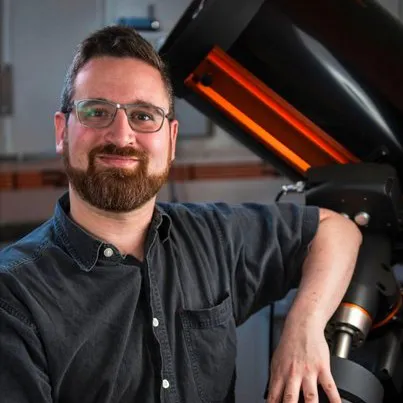
Gregory Sivakoff, Department of Physics, University of Alberta
Gregory Sivakoff is an Associate Professor at the University of Alberta Department of Physics, where he teaches Physics and Astronomy, while researching some of the coolest objects in the Universe, black holes. Professor Sivakoff is interested in determining why black holes burp jets of material while they feast on material from nearby stars. When not studying the wonders of the cosmos, he is keenly interested in communicating those wonders to the world.
